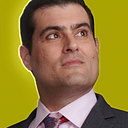Noam Chomsky
Noam Chomsky is my guest on the a recent episode of INTO THE IMPOSSIBLE. Honestly, I was a bit nervous to publish this interview. There is a rich literature which is decidedly anti-Chomsky. Ben Shapiro, Gad Saad, and even Elon Musk have vehemently criticized his positions on Cambodian genocide, his Anti-Zionistic positions, his stance on Communism, and even his view on Artifical Intelligence. And while the The INTO THE IMPOSSIBLE Podcast is inherently apolitical, and even though I disagree with him on many of his political stances past and present, I wanted to do this interview focused on his scholastic work on linguistics and consciousness and AI. I think the result is rather satisfactory. Please let me know what you think in the comments or via email.
Our conversation starts in the logical place, linguists. Noam is, after all, a pioneer in the field. Hearing him explain the differences between language and linguistics, inner monologue and consciousness, is literally learning from the master.
I couldn’t help but steer our conversation into other subjects and I appreciate his forbearance in answering questions about extraterrestrial life, meditation, and artificial intelligence — all of which do relate to his fields of expertise after all. His answers about topics that perhaps he doesn’t get asked about very often (if ever) were generously thoughtful.
photo credit: Oliver Abraham
I first met Noam at The Science of Consciousness Conference and was struck by his idea of what he calls the Galileo challenge. As he explains it:
“What Galileo and others regarded as an amazing, incomprehensible fact is that with a few symbols we somehow are able to construct infinitely many thoughts in our mind and even find a way to get others who have no access to our minds to comprehend the inner workings of our mind. And they felt that’s a miracle, and they’re right.”
As a father to young children, I am pleased Noam was able to bust a popular myth for me — that kids need to hear one million words before speaking. Of course it’s not that simple, but his response that this isn’t true because children don’t listen to their parents most likely hits close to home for all parents. The anecdotal evidence I’ve collected from my own research subjects / children confirms this.
Our conversation turns from that “bombshell” to the insight that infants are experts in learning language. As we get older it becomes background noise. The elementary but perhaps not obvious that grammar and spelling are differentiated from language and linguistics is at the heart of this conundrum.
I was fascinated by Noam’s ideas as we turned the conversation to the topics of artificial intelligence and the Turing test. It was in-depth, despite his overarching view that: “The question whether machines can think is too meaningless to deserve discussion. It’s kind of like asking whether submarines can swim. If you want to call that swimming — ok, they can swim.”
Noam’s thoughts on Elon Musk’s Neuralink project aren’t a secret, but he goes into a more detailed account of neural nets and the pursuit of cognition in our discussion. The definition of inner monologue, consciousness, and the mind clearly make perfect sense to him, and I appreciate his differentiating between them for the rest of us.
As for the controversy surrounding who signed the recent letter in Harper’s magazine, Noam calls it, “an interesting case of the radical irrationality of the intellectual culture.”
We cover all these topics and more. As you may notice, this is a longer episode — and I had many more questions I could have asked him. Many thanks to Noam Chomsky for his time and insights.
For more on the topic of AI, listen to Jordan Harbinger’s interview of Mark Cuban.
Find Chomsky on the web and Facebook
Find Brian Keating on Twitter @DrBrianKeating and YouTube
Please subscribe, rate, and review the INTO THE IMPOSSIBLE Podcast on iTunes for a chance to win a copy of Chomsky’s latest book: https://itunes.apple.com/us/podcast/into-the-impossible/id1169885840?mt=2
Noam Chomsky has been called “the father of modern linguistics.” He has been a professor at MIT since 1955 (now emeritus) and continues to teach at the University of Arizona at the age of 91. Chomsky has received numerous awards and honorary doctorates, along with being a member of multiple professional societies. He has written over 100 books covering topics including linguistics, politics, and philosophy.
